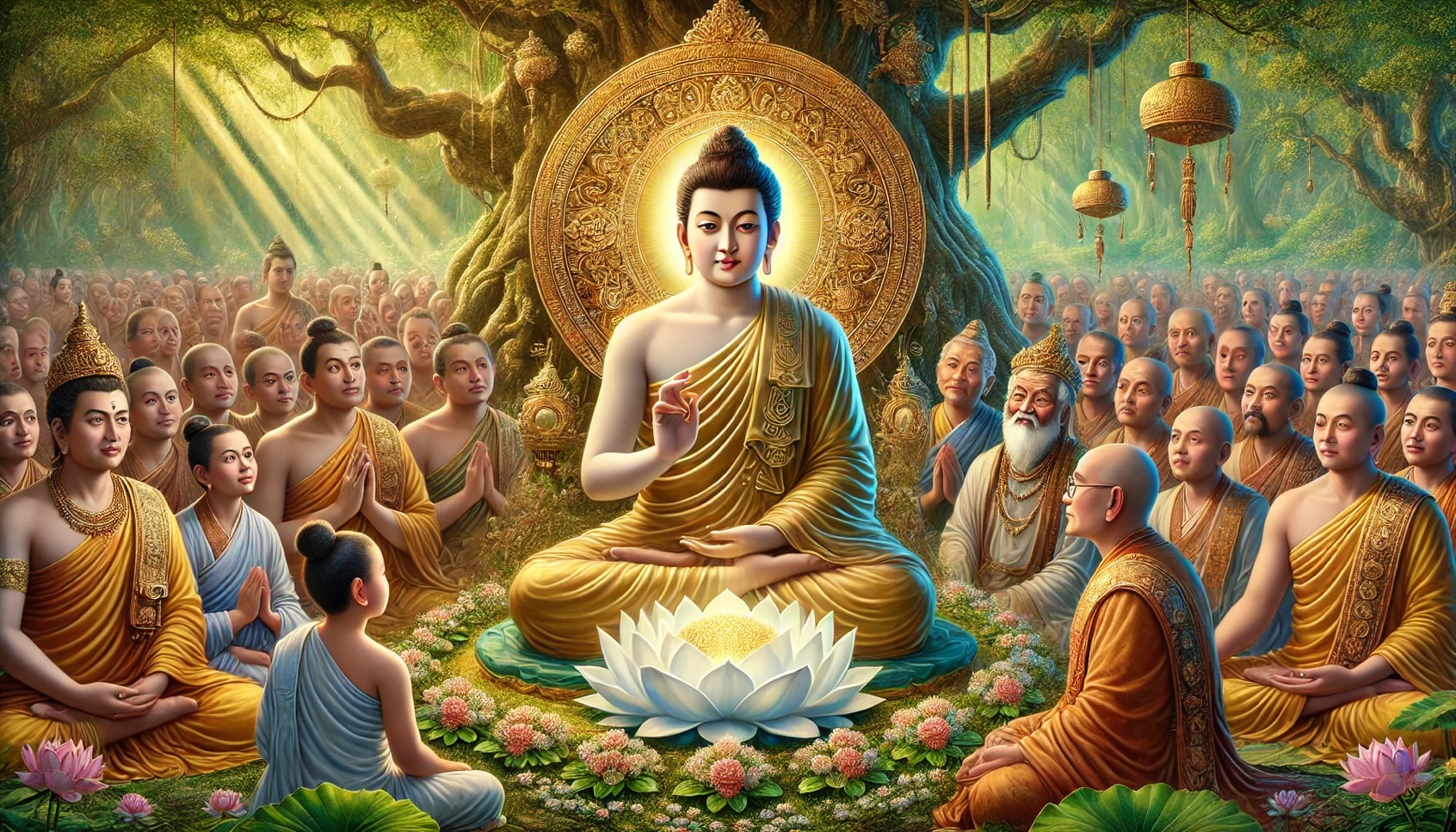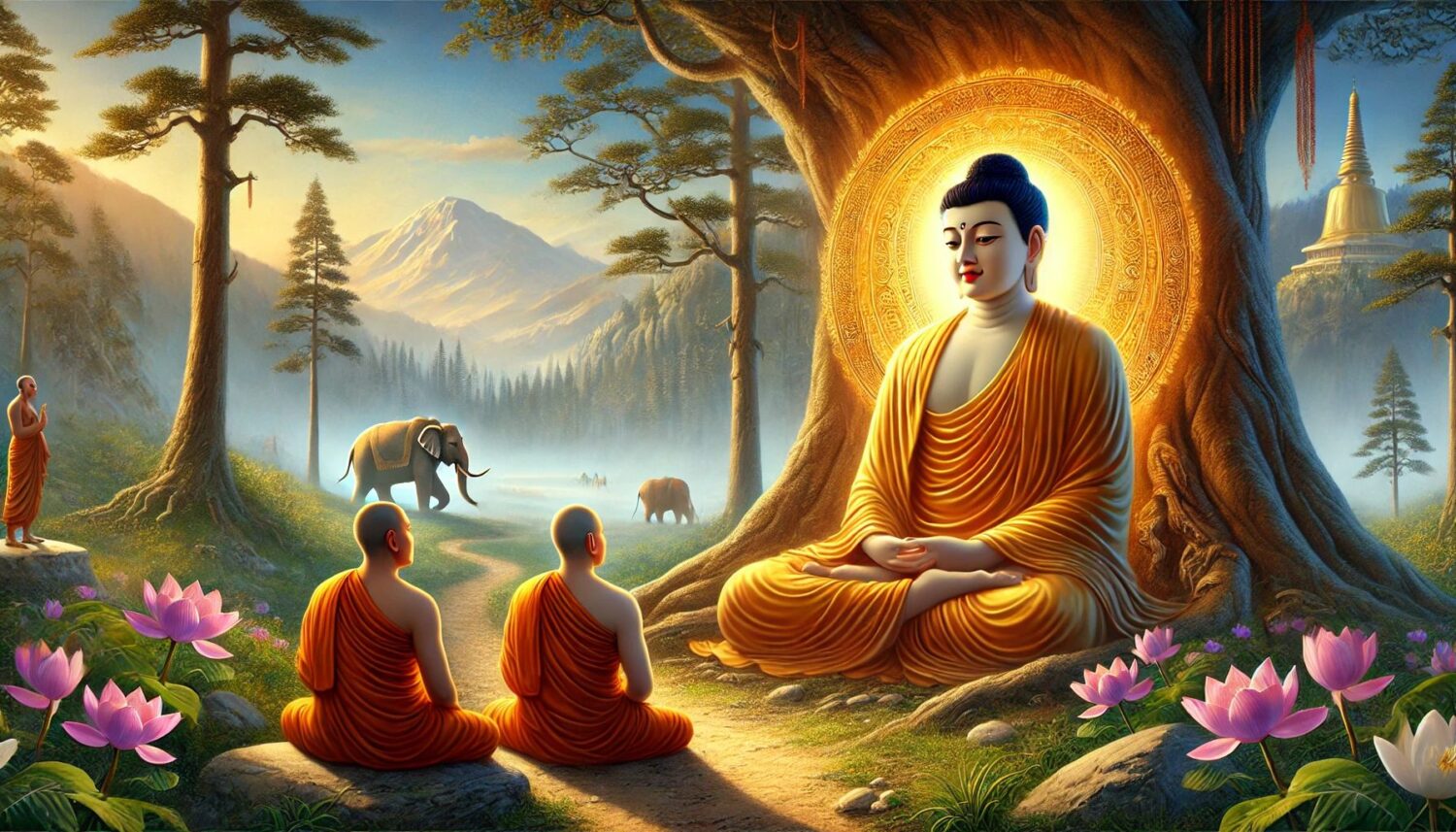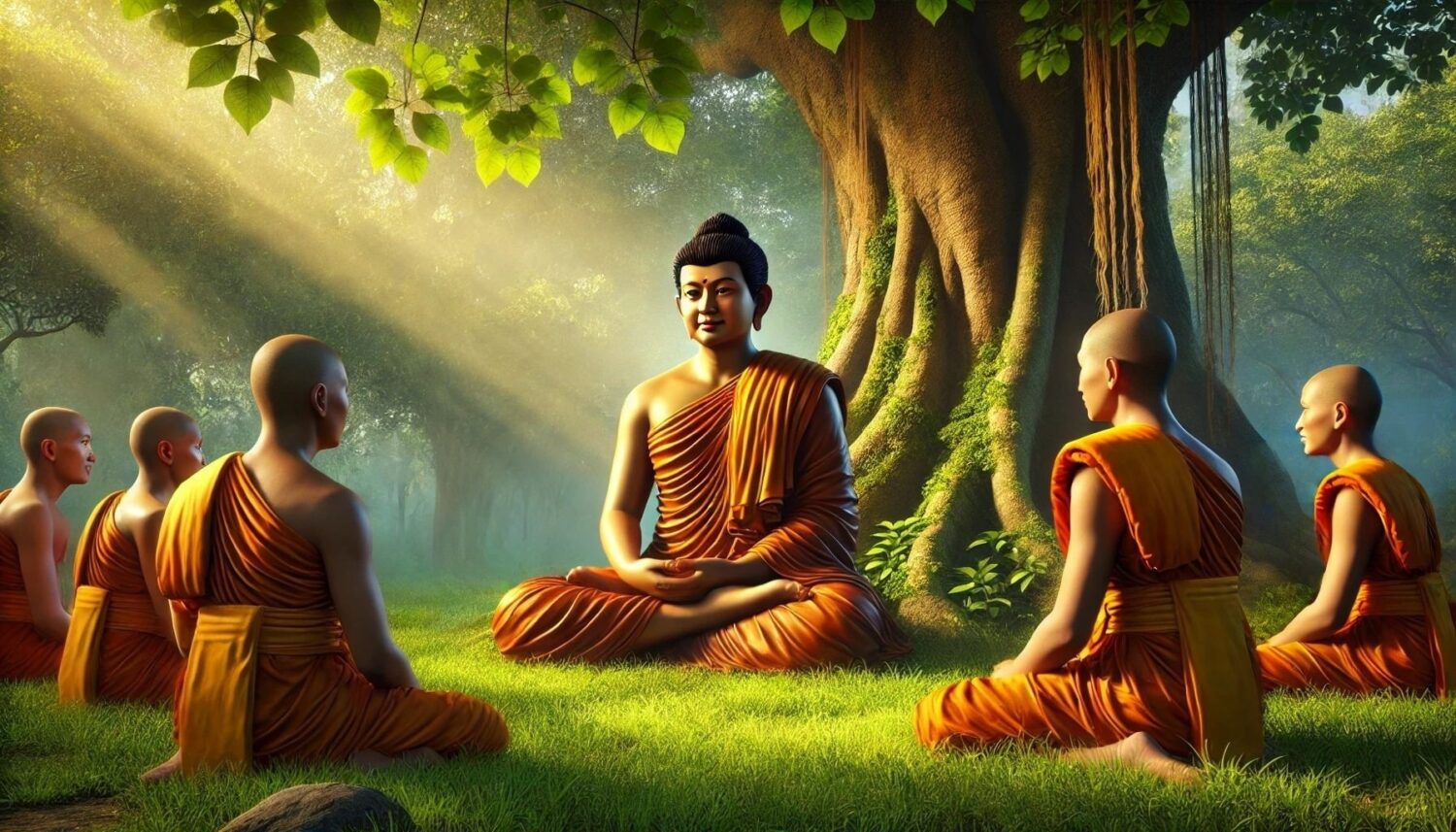
Date: 09/21/2024 09/22/2024
Location: Star Lake Meditation Center
Teacher: Otto Huang
Dharma Talk
Who experiences suffering and happiness
Once, while the Buddha and many monks were on their way to the capital city of Magadha, Rajagaha, they encountered King Bimbisara of Magadha, who had come to greet them.
King Bimbisara, accompanied by many people of Magadha, paid respects to the Buddha. The king solemnly introduced himself by name three times. After his self-introduction, other people of Magadha also came forward to pay respects to the Buddha, and then they sat around him.
At this time, the Venerable UruvilvaKassapa, who was greatly respected and revered by the people of Magadha, was also among the monks following the Buddha. The people of Magadha recognized Venerable UruvilvaKassapa, knowing him to be an enlightened sage free from attachments.
However, they were unfamiliar with the Buddha and thus wondered if Venerable UruvilvaKassapa might be the Buddha’s teacher. It wasn’t until Venerable UruvilvaKassapa addressed the Buddha as his teacher that their doubts were dispelled.
Seeing that the people of Magadha no longer had any doubts, the Buddha began to teach them. He first aroused their interest and willingness to learn, then taught about generosity, morality, and the path to heaven. He explained the downfall and dangers of sensual pleasures, the impurity of birth and death, the merits of renunciation, and the purity of the methods of learning the Dharma.
These teachings, known as the “proper teachings,” prepared them with joy, docility, patience, aspiration, concentration, certainty, and clarity to receive the core doctrines of the Dharma. Only then did the Buddha teach the “noble truths,” explaining the Four Noble Truths: suffering, the cause of suffering, the cessation of suffering, and the path to the cessation of suffering. The Buddha said:
”Great King! You should know that form, feeling, perception, volition, and consciousness are constantly arising and ceasing, just like raindrops falling on the water’s surface, causing bubbles to arise and burst.
Great King! If one can truly understand the five aggregates (form, feeling, perception, volition, and consciousness) as they are, then one can be free from attachment, clinging, defilement, and craving for them, and not regard form, feeling, perception, volition, and consciousness as oneself.
In this way, there will be no future aggregates, and one will attain the state of ‘immeasurable, incalculable, infinite, cessation, and tranquility’—the state of liberation. Once the five aggregates of this life are abandoned, there will be no next five aggregates.”
Hearing this, many people of Magadha thought: If form, feeling, perception, volition, and consciousness are indeed impermanent and ever-changing, then who is living? Who is experiencing suffering and happiness?
The Buddha, knowing their doubts, continued to explain:
”Ignorant ordinary beings, who have never heard the true Dharma, believe in a real self and cling to it. But in reality, there is no self and nothing that belongs to the self. The self and the notion of ‘mine’ arise from dependent origination and are empty.
Everything arises when conditions are sufficient and ceases when conditions dissipate. Suffering, too, arises from the gathering of conditions, and if conditions cease, suffering is also extinguished. The Tathagata sees the conditions of sentient beings’ birth and death and speaks of ‘having birth and having death.’
With the divine eye, I see sentient beings according to their karma, dying in this world and being reborn in various forms in the next. If sentient beings perform evil deeds with body, speech, and mind, they will be reborn in hellish realms and other evil destinations.
If sentient beings perform good deeds with body, speech, and mind, they will be reborn in heavenly realms and other good destinations. I know this deeply, but I do not say that there is an unchanging entity that experiences karma.
Great King! Is form, feeling, perception, volition, and consciousness permanent or impermanent?”
”They are impermanent, World-Honored One!”
”If they are impermanent, are they suffering or non-suffering?”
”They are suffering, World-Honored One!”
”If they are impermanent, suffering, and subject to change, would a well-learned disciple of the Dharma regard them as ‘This is mine, this is what I am, this is myself’?”
”No, World-Honored One!”
”Great King! Therefore, you should learn that all forms, feelings, perceptions, volitions, and consciousness are not the self, not what belongs to the self, and there is no self within them. You should understand this with wisdom as it truly is.
Great King! If a well-learned disciple of the Dharma can observe in this way, he will become disenchanted with form, feeling, perception, volition, and consciousness. When he is disenchanted, he will become free from desire. When he is free from desire, he will attain liberation.
After liberation, he will have the knowledge of liberation: ‘My birth and death have come to an end, the pure life has been established, what had to be done has been done, I know that there will be no further existence.'”
Hearing this, King Bimbisara and many other listeners, free from defilements, attained the purity of the Dharma eye; they saw, attained, and realized the Dharma, resolving their doubts about it on their own without relying on others, and attained the first stage of enlightenment. They were fearless in the true Dharma taught by the Buddha. King Bimbisara then rose from his seat, paid homage to the Buddha, and said:
”World-Honored One! From now on, I take refuge in the Buddha, the Dharma, and the Sangha. May the World-Honored One accept me as a lay disciple! From today onward, I take refuge for life, until my death.”

